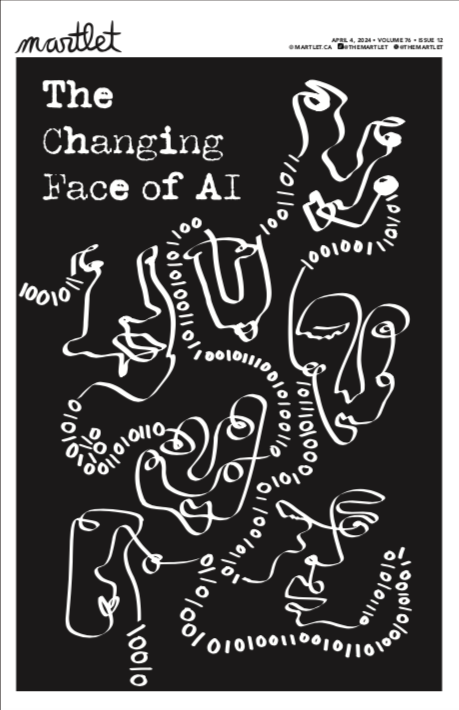In the past, a university instructor’s private life would likely remain outside the classroom door, but maintaining a digital life makes that far more complicated. As authority figures, it’s reasonable to expect instructors to maintain their neutrality, or acknowledge their personal biases when teaching. But, are instructors obliged to maintain this approach when they leave the classroom?
On Jan. 19, the Martlet received an email from an anonymous source with information pertaining to controversial views being shared online by a UVic instructor.
The source informed the Martlet of a regularly updated religion-focused blog, and online comments through Disqus, a comment hosting service. The blog explores different facets of religious faith, but often delves into broader social issues, including same-sex marriage, abortion, contraception, the practice of Islam, and transgender identity.
According to the source, who declined to be interviewed in person, the instructor has made occasional offhand comments that made some students uncomfortable, but did not elaborate on the nature of the comments. However, the source said the instructor is likeable and friendly, and the Martlet has independently verified that the instructor has not shared their views displayed online in the classroom. In the source’s estimation, the blog has been a source of rumours among students in the department for the last few years.
The Martlet was able to confirm the instructor’s identity through their online Disqus profile, which linked to their Twitter profile, and furthermore to their blog. The instructor is directly linked to their blog in a local religious newsletter.
The instructor did not respond to requests for comment on Jan. 21 and Feb. 16. On Jan. 22, their Twitter account was deleted and visible signatures were removed.
[pullquote]According to the B.C. Human Rights Tribunal, publications on the Internet are not protected under the B.C. Human Rights Code.[/pullquote]
In response to an article critical of same-sex marriage, the instructor commented that homosexual relations typically involve drug use, high rates of disease, and promiscuity. According to the online comment, these partnerships could be problematic for children due to identity confusion. The instructor characterizes these relationships as “dangerous” in a blog post, and says that same-sex marriage is an illusion to accommodate these “bad” behaviours. The instructor also attributes it to the destruction of the family and the widening gap between the rich and the poor.
The instructor has written that the “abortion industry” relies on the failure of artificial contraception to generate profits, and that contraception offends the values of God. Another online post states that the Islamic and Mormon religions misrepresent Jesus, and that Muslims cannot be reasoned with.
Dr. Eike-Henner Kluge from the Department of Philosophy has previously argued on behalf of freedom of speech in the debate on abortion, agreeing with Stephanie Gray’s stance on that issue during on-campus debates in 2009 and 2014. Gray is the Calgary-based executive director at the Centre for Bioethical Reform, and a pro-life activist who debated Kluge, who represented the pro-choice argument.
“Any time you have somebody who, without harassing anybody else, presents an opinion—to interfere with that presentation of that opinion is, from my biased perspective, ethically indefensible because it denies freedom of speech,” he said.
Kluge has also been an ethics consultant for the B.C. Police Complaints Commissioner, dealing with the private conduct of police officers. “If your actions interfere with your ability to act in your professional function, or bring the profession into disrepute—then you shouldn’t do that,” he said. “But if they don’t, then it’s irrelevant. I don’t cease to be a private individual entirely, simply because I’ve become a professional.”
An opinion becomes hate speech when its effect is to deliberately ferment hatred and disrespect to others, according to Kluge. “While one should not deliberately offend people, people also have a duty not to be easily offended,” he said. “To be easily offended is to say that your conceptual framework is the one that governs absolutely everything, and that’s not true, not in a multicultural society.”
When it comes to the intention to discriminate, “You don’t have a crystal ball,” he said.
“This is what we find out, whether society, and UVic society in particular, really believes in equality and justice,” he said. “If you don’t allow me to state my opinion, then you don’t really believe in equality and justice.”
[pullquote]
“If your actions interfere with your ability to act in your professional function, or bring the profession into disrepute — then you shouldn’t do that, but if they don’t, then it’s irrelevant. I don’t cease to be a private individual entirely, simply because I’ve become a professional.”
— Eike-Henner Kluge
Professor, Department of Philosophy
[/pullquote]
Following multiple requests, UVic communications staff felt they could not respond to the instructor’s paraphrased quotes. They chose not to provide the Martlet with a statement unless given verbatim quotes and the blog’s URL. The Martlet has also reached out to the director of the instructor’s department and a variety of UVic administrators and experts in free speech, religious studies, gender studies, and law without response or willingness to discuss the issues involved.
In late January, the B.C. Supreme Court dismissed Youth Protecting Youth’s freedom of speech infringement complaint against the University of Victoria Students’ Society. In commenting on an editorial on the issue, the instructor stated that human rights tribunals force people to adhere to politically correct but “morally bankrupt” beliefs.
The Canadian Union of Public Employees (CUPE) agrees to abide by the British Columbia Human Rights Code (HRC) under Discrimination, Harassment, Employment Equity, and Other Complaints. Under the code’s Discriminatory Publication section (Section 7), it states:
(1) A person must not publish, issue or display, or cause to be published, issued or displayed, any statement, publication, notice, sign, symbol, emblem or other representation that
(a) indicates discrimination or an intention to discriminate against a person or a group or class of persons, or
(b) is likely to expose a person or a group or class of persons to hatred or contempt because of the race, colour, ancestry, place of origin, religion, marital status, family status, physical or mental disability, sex, sexual orientation or age of that person or that group or class of persons.
(2) Subsection (1) does not apply to a private communication, a communication intended to be private or a communication related to an activity otherwise permitted by this Code.
According to Information Sheet No. HR4 from the B.C. Human Rights Tribunal, updated in 2014, publications on the Internet (in this case, a public blog) are not protected under the HRC.
“What the B.C. HRC does, is it prevents certain types of discrimination from happening in certain types of contexts,” said Eric Pedersen, a civil litigation lawyer at Velletta & Company in Victoria. The code would apply for situations when businesses discriminate against its customers, or an employer discriminating against its employees, he said.
The B.C. Human Rights Tribunal takes the position that the Internet is a form of telecommunication, and therefore falls under the jurisdiction of the federal government, Pedersen said. “We do have a federal Human Rights Act, but very recently the government removed section 13 from that act, and that was the section that would have applied to hate speech on the Internet.”
In 2001, Section 13, or the ‘hate speech’ provision in the Canadian Human Rights Act, was expanded to apply to publications on Internet. The provision targeted materials that were “likely to expose a person or persons to hatred or contempt,” based on discrimination against race, religion, or sexual orientation. In June 2013, it was controversially repealed after a vote in the Senate, allowing free speech to govern the Internet.
Internet-propagated hate speech is now under the domain of the criminal justice system, where a rare standard of proof is required, leading to few convictions. The Criminal Code is now left as the primary tool against electronic publication, used for more extreme cases like child pornography.
In a lengthier post on liberal religion, the instructor declares a “call to arms” on issues like same-sex marriage and modern families. According to the post, the instructor believes transgender individuals’ DNA and science are being ignored for the sake of feelings.
A professor in the Department of Sociology, Dr. Aaron Devor, is an internationally respected expert on gender and sexuality and disagrees with the instructor’s view. Devor is the founder of UVic’s transgender archive, the largest in the world.
“I think the views are incorrect—and we live in an environment where we allow people to express incorrect views—they are subject to the forum of public opinion, and hopefully someone will respond and point out how incorrect these views are,” he said.
Although Devor finds these views objectionable, he does not believe individuals should be limited in their ability to express those opinions—unless they were being expressed in the classroom, or claiming to represent UVic. “They need to express their views in an appropriate way and in an appropriate place. If these views were being expressed in a classroom, I would be concerned,” he said.
“The Internet is well-populated with private citizens posting commentary that I find repugnant, but they have a right to do that,” he said. “In a forum of free exchange of ideas, everybody else has the right to tell them what they think about them.”






